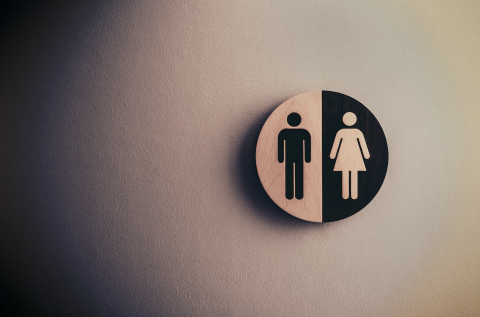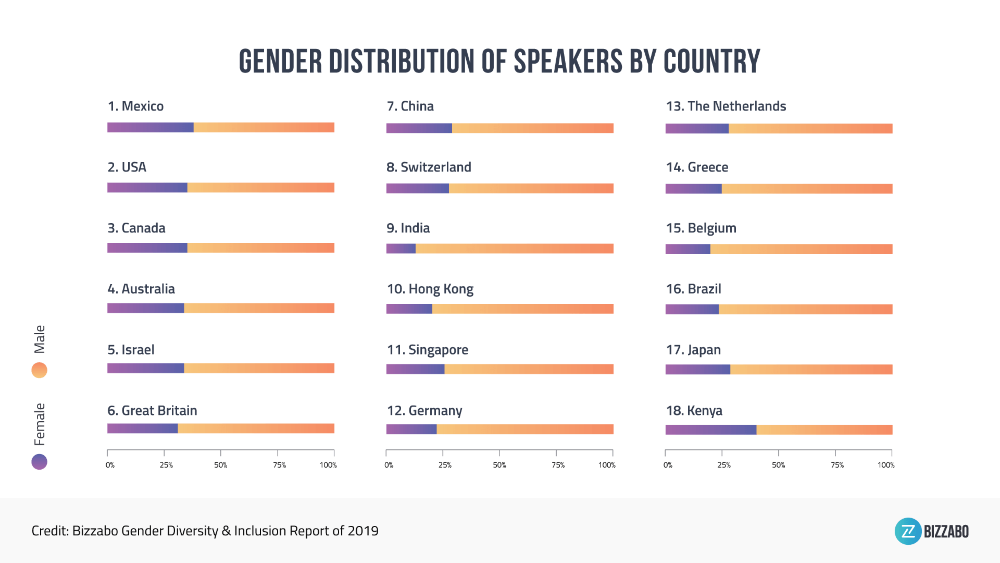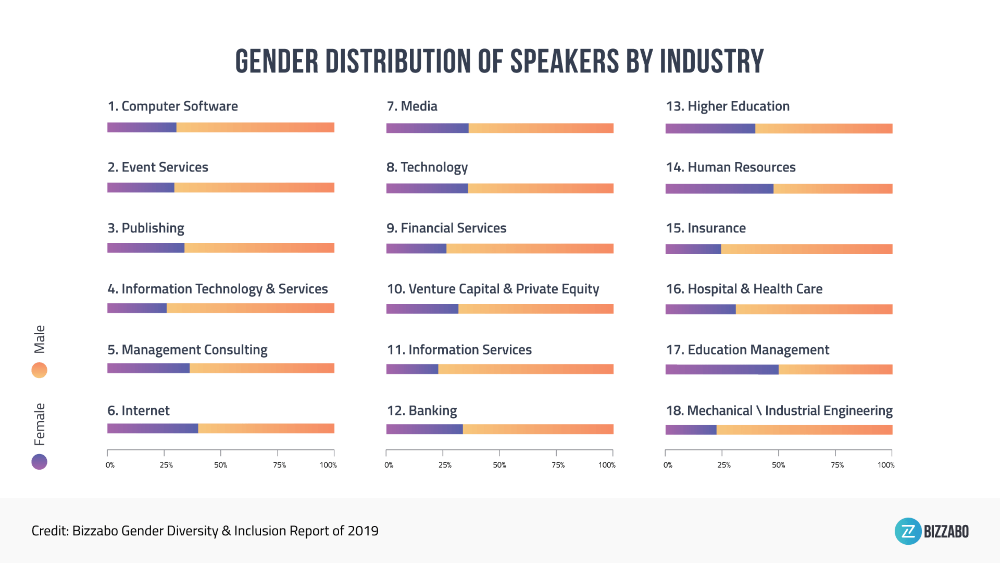New Study Shows Two-Thirds of Event Speakers Are Male

The all-male speaking panel — or “manel” — has received harsh criticism, with many speakers (both male and female) pledging to not participate in events where gender diversity is an issue. There’s even a Twitter handle (@allmalepanels) that seeks to both shame event organizers and draw more attention to the issue by calling out particularly egregious manels.
Yet a new study from event technology provider Bizzabo shows that the event speaking landscape continues to be male-dominated, with male speakers outnumbering female speakers 2-to-1. And in industries like information technology and services, the numbers are even more disparate, with more than three-quarters of speakers being male.
Bizzabo’s annual Gender Diversity & Inclusion in Events Report analyzed the gender diversity of more than 60,000 event speakers over a seven-year period (2013-2019). It included respondents from 58 countries across five continents, 45 industries and thousands of the world’s largest professional events.
The 2019 report shows that the number of female speakers has grown a mere 3 percent from the previous study, released in November 2018.
“This year’s analysis has shown progress, when compared to last year’s study but, unfortunately, not enough,” said Alon Alroy, Bizzabo co-founder. “The narrow 3-percent bump, even taking into account the smaller dataset used last year, shows that we still have a long way to go before there is greater gender balance within events.”
While science and technology have received the most negative press, the study shows that the discrepancy spans nearly all industries. Education management events appear to be the sole standout, with a true 50/50 balance.
Key Statistics
By country:
- Kenya has the highest number of female speakers, at 40 percent. Mexico is not far behind with 38 percent.
- The U.S. and Canada are slightly ahead of the average, with 64 percent male and 36 percent female speakers.
- The U.K. lags behind with a 69 percent male / 31 percent female split.

By industry:
- Education management – 50 percent male, 50 percent female
- Higher education — 60 percent male, 40 percent female
- Technology — 63 percent male, 37 percent female
- Software — 68 percent male, 32 percent female
- IT Management & Services — 76 percent male, 24 percent female

According to the report, summits (85 percent male versus 15 percent female) and conferences/conventions (66 percent male versus 34 percent female) are the least diverse event types barring user groups, which report in as almost exclusively male.
“Fixing the problem requires a conscious effort on the part of conference organizers to look outside their immediate networks and to set goals, like aiming for 50/50 representation,” said Bizzabo Co-Founder and CEO Eran Ben-Shushan.
Have you taken steps towards ensuring gender equality and inclusivity at your events (note that this study did not include non-binary as an option)? If so, how have you approached this?


Add new comment